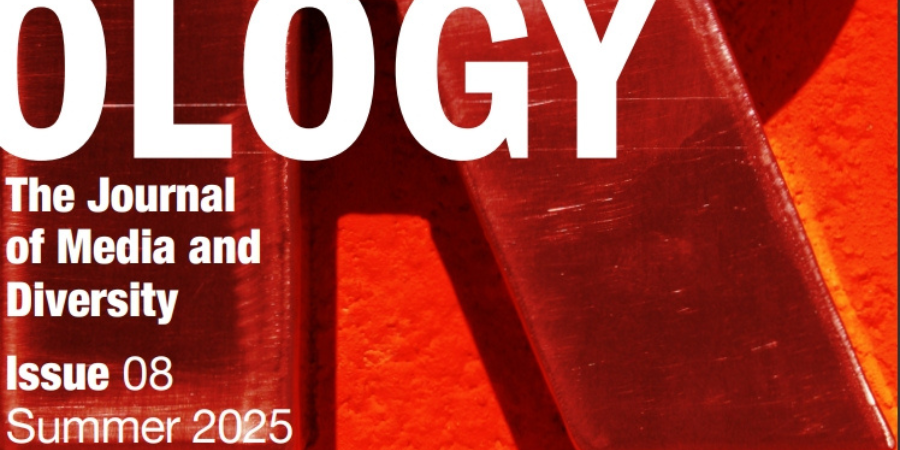University News Last updated 24 September

In an insightful and wide-ranging interview with Sir Lenny Henry for the latest edition of Representology, acclaimed journalist, newsreader and presenter Clive Myrie reflects on his career, the state of public broadcasting, and media diversity in Britain today.
Born in Farnworth near Bolton to Jamaican immigrant parents, Myrie, 61, has worked for the BBC for almost 40 years after joining them as a trainee local radio reporter in 1987.
In the interview with Sir Lenny, he reveals that his first job in journalism was writing articles for Black Beauty and Hair, a publication serving Black British communities.
He also discusses racism in the media – and details his own experiences.
“There’s the odd email, the odd letter that comes in and gets past the BBC vetting system, and I open it and it’s a card with a gorilla on or whatever,” he says.
“I used to get angry. I used to feel very down about it. As I’ve got older, the racism that I get – the small amount that I get – it bounces off a little more quickly than it used to as a young guy.”
In the interview, Myrie strongly defends the relevance of public broadcasting in an era of growing media misinformation.
“It’s even more vital now than ever,” he says.
“In a world of fragmented media, where people can get their own points of views reinforced, where they’re not challenged… an organisation – a media entity – that is trying to duly report, impartially, what is going on in the world is more vital than ever.”
While he acknowledges that the BBC can seem “anachronistic” for continuing to champion impartiality in a landscape increasingly dominated by agenda-driven outlets, Myrie argues that seeking balance remains essential.
“It’s like wearing flares from the 1970s, it’s like wearing kipper ties, it’s old-fashioned,” he admits. “But what we do is look at the evidence. We talk to both sides.”
He adds: “Lots of people today aren’t interested in impartiality. They might argue, in the abstract, that they do, but they don’t. They want propaganda. They want their own point of view pushed forward.”
Turning to the BBC World Service, Myrie voices concern over its recent scaling back, warning that the UK risks losing its global soft power advantage.
“Soft power is incredibly important, and the BBC embodies that in an incredibly efficient, cost-efficient way,” he says. “Those three little letters – BBC – carry so much weight around the world, and we’re in danger of throwing all that away.”
Finally, when asked what advice he would offer to aspiring journalists from diverse backgrounds, Myrie, who is also Chancellor of the University of the Arts London, is candid.
“It is tough out there,” he says. “Do not expect anyone to give you anything for free and work your butt off. It’s what my mum said: ‘You’re gonna have to work twice as hard to be noticed because you are a person of colour.’ I think that still holds true.”
To read the full interview with Clive in the latest edition of Representology, click here.
Volume eight of Representology also features a profile of the trailblazing Una Marson - the first Black woman employed at the BBC - alongside a thought-provoking article from Ben de Pear on media coverage of the war in Gaza, and a compelling account from Aaqil Ahmed of how Eid prayers came to be broadcast from his local mosque in Bradford.